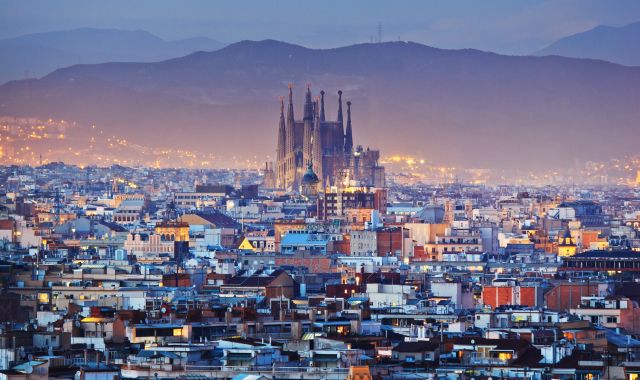Barcelona, the first best 'tech city' in the world that is not capital
Barcelona attracts 30% digital talent from other cities and is becoming a pole of attraction to invest and come to work. One out of every 10 job offers in the city is linked to technology, a figure that represents 40% more than in 2018. In addition, according to a report from the resonance tourism and economics consultant in the United States, the Catalan capital is the fifth best city in the world to come to work, but also suffers from the lack of demand to occupy all jobs linked to technological talent and, above all, feminine. That is why, under the title Barcelona we raise capital, Catalans Lliures celebrated an afterwork of enterprising women on the terrace of the Eugenia Rosselló hotel with the CEO of SocialCar and collaborator of this newspaper, Mar Alarcón, Strategy & Economics of PwC, Anna Merino, the economist, tax adviser and responsible for the tax area of consultant Ubach Munné, Anna Rossell, and with the collaboration of VIA Empresa.
"We are the first city on the list that is not a capital" and that "has a lot of merit because behind ours there is Madrid." With these words, Rossell emphasized the importance of the city of Barcelona in the top 10 of the best cities in the world and, in fact, the only one in Spain that appears in it. "We have no capital effect," he continued. Before that, Alarcón adds one more point to the question: "The handicap of not being a capital is that we do not have the fiscal competences for everything". Precisely in this sense, the CEO of SocialCar considers that "it should be made more open regulation because it can not be that for every new thing that comes out, there are problems." If there is no regulation, and the lack of local financing is added to it, "the underground economy grows," Merino maintains on his side.
Now, Barcelona goes ahead and continues to grow. "In spite of the regulation, we find an ecosystem that grows" because "the character of the entrepreneur here has many strengths," Alarcón emphasizes, while reminding that "when an entrepreneur embarks on a city, then returns its fruits ".
Find the recipe with human capital
Given that, and considering that regulating all this is not a quick job for the administrations, Merino is clear and believes that "the only solution to change all this happens through a collective agreement as a society." But the role of the administrations is important and, according to the representative of PwC, "it would be necessary for the administrations to start planning roadmaps to combat all these threats and see how we want to be the city of the future."
And this includes working with the look set in the long-term future and not just short. The price of housing and the overcapacity of cities, for example, "are social issues that must be debated" in this regard. In addition, and as Rossell points out, "we also lack realism and a critical sense" because "we should demand a lot more for our rights."
Meanwhile, Rossell regrets that "those who rule, have very few incentives for change and protectionist tendencies are very sophisticated: tariffs are no longer fashionable, but regulation," he says. The ingredients are there. You just need to know how to combine them and not leave them in the fridge in order to be able to move towards the future at the same pace as society and technology do, while encouraging girls' talent and guiding them in this direction towards the future. And, as Alarcón says, "we have a large number of entrepreneurs committed to returning their talent to Barcelona. Our human capital and character are a great asset." And that must be exploited and strengthened.
